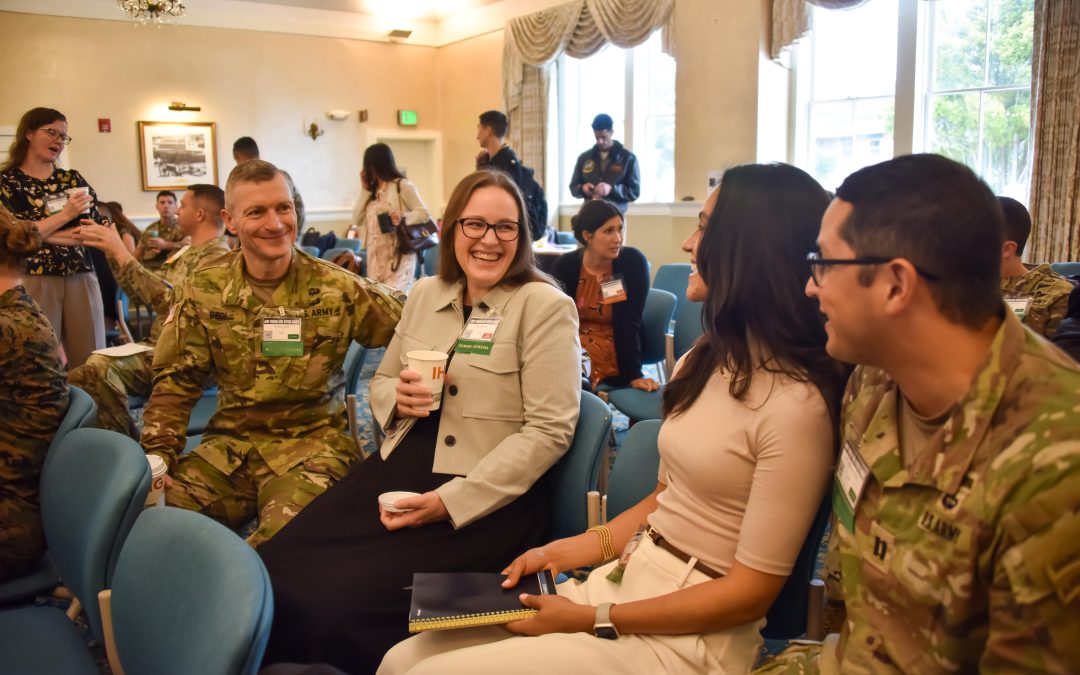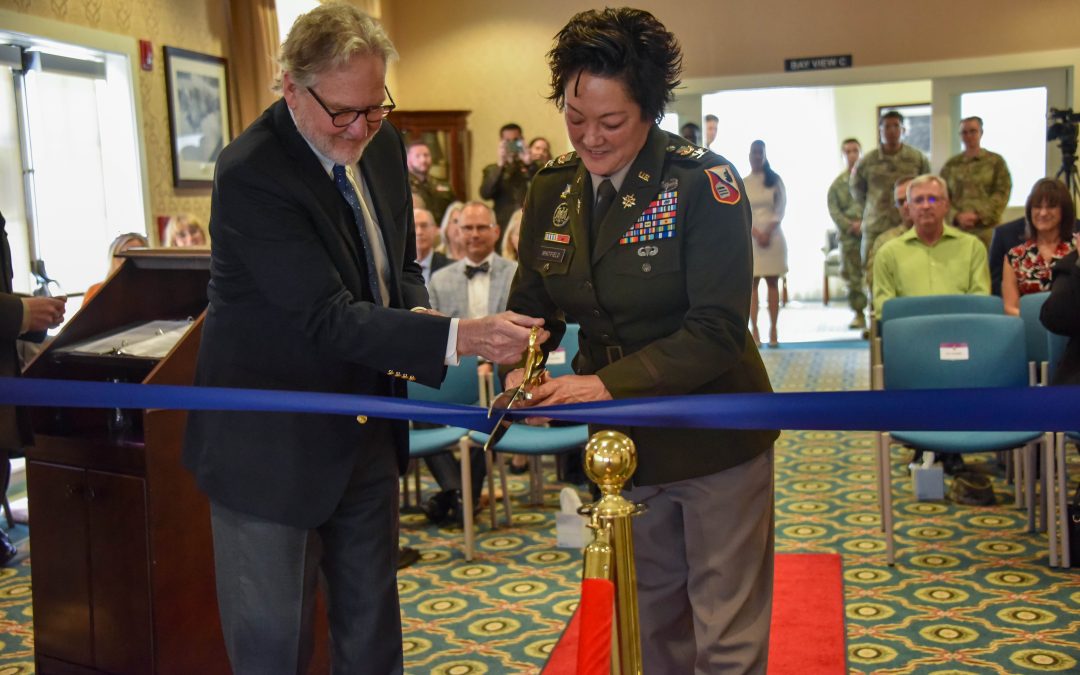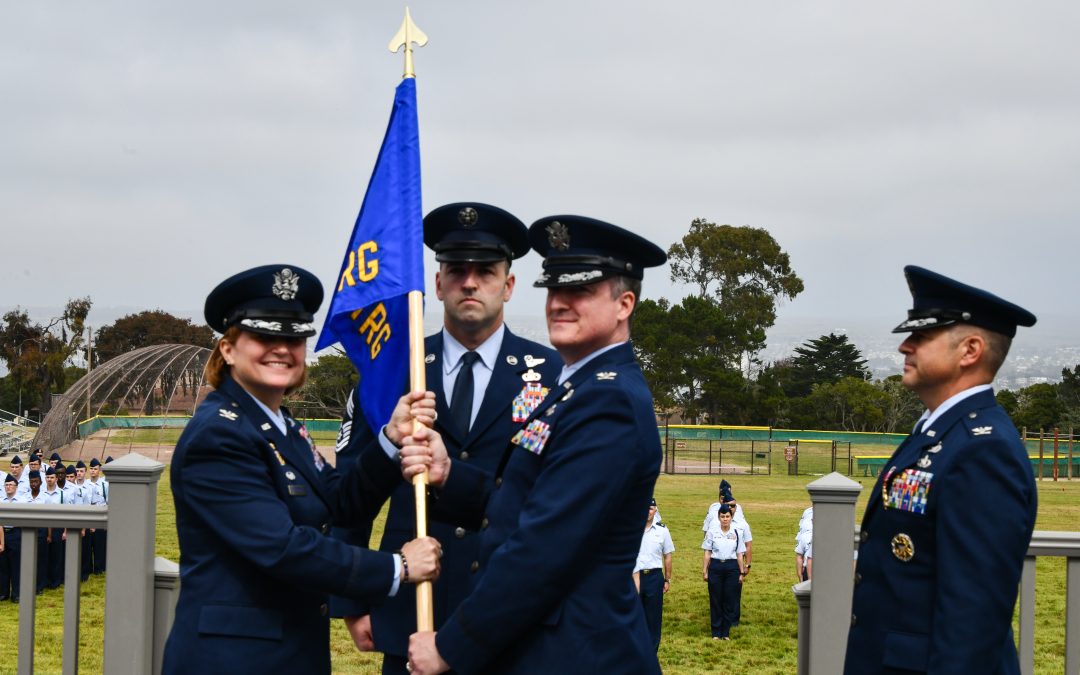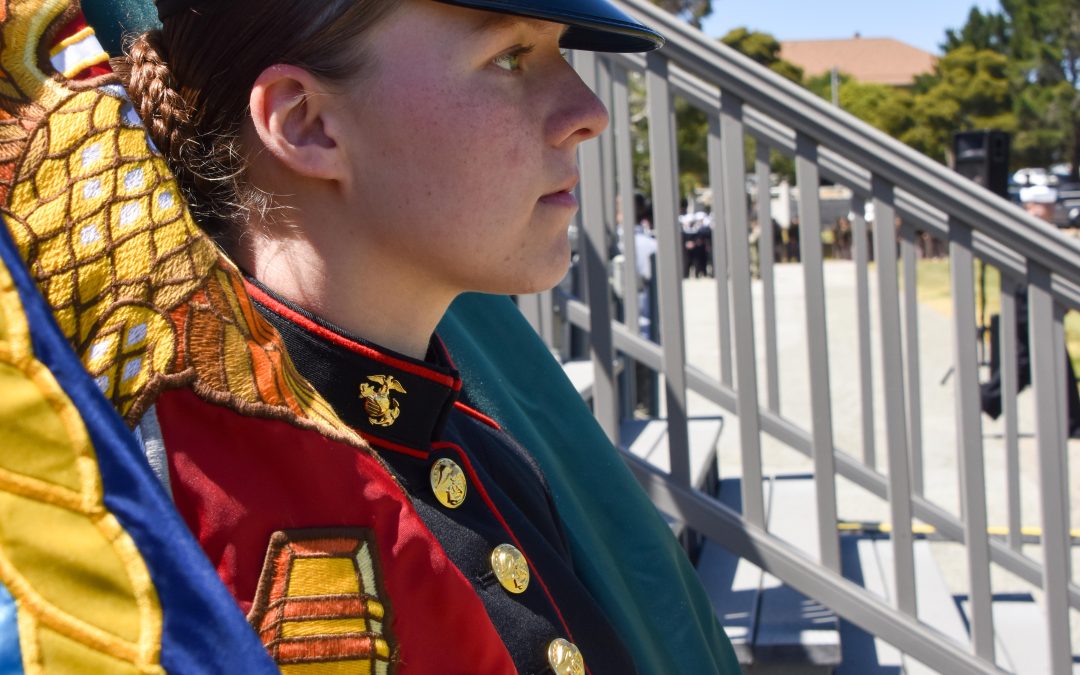By Patrick Bray
DLIFLC Public Affairs
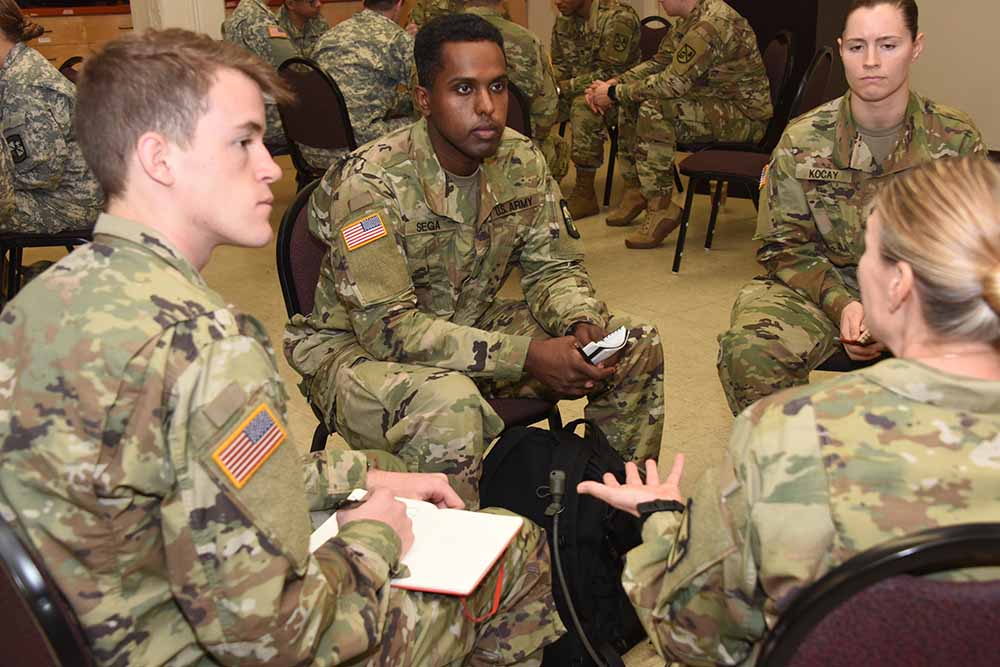
Lt. Col. Toni Sabo (far right), commander of the 229th Military Intelligence Battalion, the U.S. Army element at the Defense Language Institute Foreign Language Center, Presidio of Monterey, speaks with cadets from the University of California, Berkeley, Army ROTC Battalion March 16. During two hour-long panels the cadets engaged in meaningful and purposeful conversations with Army officers and NCOs from the 229th. (U.S. Army photo by Patrick Bray/Released)
MONTEREY, Calif. – Soldiers from the 229th Military Intelligence Battalion, the U.S. Army element at the Defense Language Institute Foreign Language Center, Presidio of Monterey, conducted a leadership panel with Army ROTC cadets from the University of California, Berkeley, March 16.
“The Army’s future is bright, indeed, as Berkeley’s cadets continue their education and prepare for commissioning,” said Lt. Col. Toni Sabo, commander of the 229th.
During two hour-long panels, third and fourth-year cadets, known as Military Science III and IV, engaged in conversations with Army officers and NCOs from the 229th for the purpose of gaining mentorship.
“The cadets asked insightful questions about leading in today’s Army,” said Sabo. “As MSIII and MSIV cadets, they already appreciate the importance of building strong relationships with the NCOs who form the backbone of our Army and who are the first line leaders of our junior-enlisted Soldiers.”
DLIFLC and the 229th have deepened cooperation between the active duty and several San Francisco Bay Area Army ROTC programs such as those at Santa Clara University and San Francisco State University.
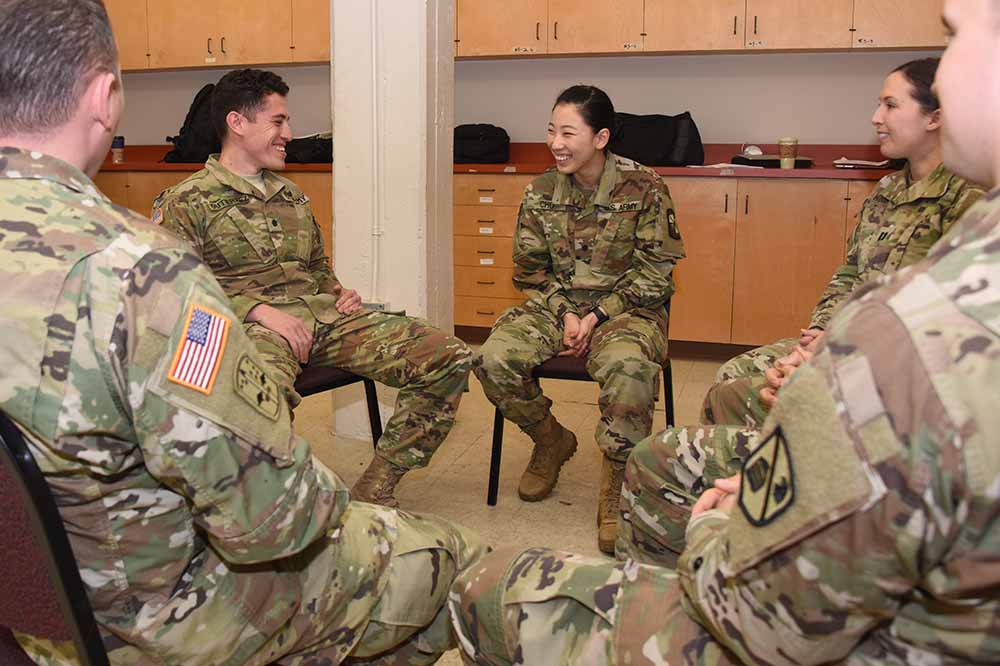
Cadets from the University of California, Berkeley, Army ROTC Battalion prepare to listen to officers and NCOs from the 229th Military Intelligence Battalion, the U.S. Army element at the Defense Language Institute Foreign Language Center, Presidio of Monterey, March 16. During two hour-long panels the cadets engaged in meaningful and purposeful conversations with the 229th. (U.S. Army photo by Patrick Bray/Released)
Likewise, cadets from Berkeley’s Golden Bear Battalion had previously visited DLIFLC to learn more about linguistic related careers in the Army, including the Foreign Area Officer career field, which is something cadets could strive for when they earn the rank of major.
Army ROTC started with 35 initial programs in 1916 that also included Berkeley. Historically, Berkeley has been commissioning U.S. Army officers as far back as 1870. The Army ROTC program today came into being with the passage of the National Defense Act of 1916.
The training and experience gained in ROTC was the foundation for six Chiefs of Staff of the Army, two chairmen of the Joint Chiefs of Staff, a justice of the Supreme Court, as well as other leaders in government, business, entertainment, science and sports.
DLIFLC provides resident instruction in 17 languages at the Presidio of Monterey, California, with the capacity to instruct another 65 languages in Washington, D.C. The Institute has graduated more than 220,000 linguists since 1941.
In addition, multiple language training detachments exists at sites in the U.S., Europe, Hawaii and Korea, spanning all the U.S. geographic combatant commands in support of the total force.

